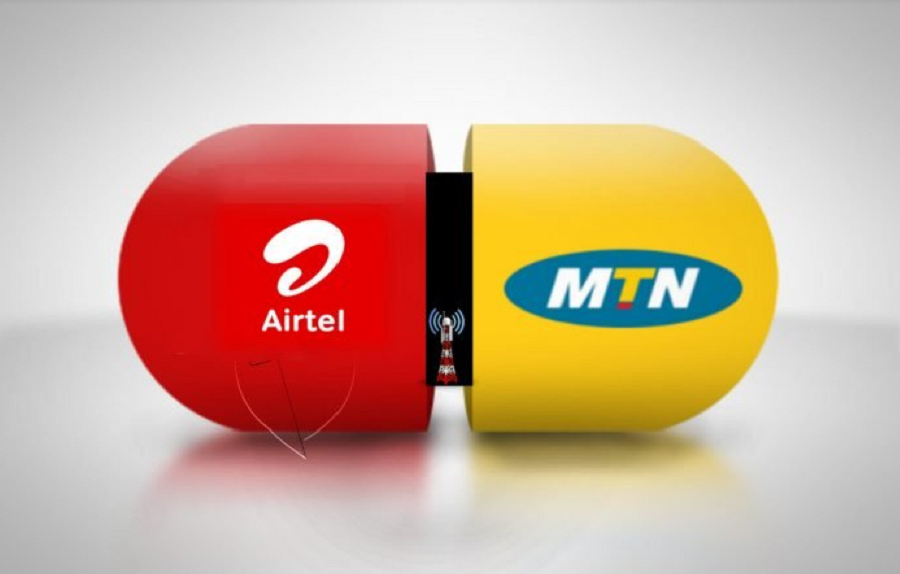Article Summary
- Mobile operators, MTN and Airtel, have invested N117 billion to renew their 3G licence for another 15 years.
- The investments confirm that the operators will not be shutting down 3G even as they expand 4G across the country and roll out 5G network.
- It also raises hope for rural connectivity in Nigeria.
Two of the leading mobile network operators in Nigeria, MTN and Airtel have invested N117 billion in renewing their 3G licence. This is coming amid their investments in 4G expansion and most recently, 5G rollout.
The two companies recently paid N58.7 billion each to the Nigerian Communications Commission (NCC) for the 2100 MHz spectrum, which will allow them to continue to deliver 3G services for the next 15 years.
While there had been fears that the operators might shut down their 3G service to concentrate the investments in the new generation networks, 4G and 5G, the licence renewal has dispelled those fears.
The operators’ 3G licences had expired since April last year, but the NCC did not give them the go-ahead to pay for renewal until this May.
Confidence in the Nigerian market
Sharing updates on the company’s latest investments in Nigeria, Airtel Africa CEO, Segun Ogunsanya, the group’s full-year financial statement released on Thursday said:
- “On 9th May 2023, we announced that our Nigerian subsidiary, Airtel Networks Limited (‘Airtel Nigeria’), has made a payment of NGN58.7bn ($127.4m), payable to the Nigerian Communications Commission (NCC), to renew its 2x10MHz 2100 MHz spectrum licence.
- “Once renewed, the licence will be valid for 15 years following the expiry of the previous licence (30 April 2022). This investment to renew the licence reflects our continued confidence in the opportunity inherent across the Nigerian market, supporting the local communities and economies through furthering digital inclusion and connectivity.”
MTN, while announcing the approval of its spectrum lease deal with NTEL in a disclosure made to the NGX, said NCC had also renewed its 2100MHz spectrum for 15 years, effective from 1 May 2022 to 30 April 2037. It said the spectrum would enable the company to continue to provide 3G services on its network. For the spectrum, MTN said it also paid N58.7 billion to the NCC.
4G, 5G on course
Despite the investments in 3G, the two operators said they are forging ahead with the expansion of 4G networks and 5G rollout. MTN which acquired 5G licence in December 2021 alongside Mafab Communications, was the first to roll out commercial 5G in 6 states in September last year. The company has since then continued to roll out in other states in fulfillment of the licence obligations.
Airtel on the other hand secured its 5G licence in December 2022 and made payment for the licence in January this year. Speaking on the company’s 5G licence acquisition, Ogunsanya said:
- “The acquisition of 5G spectrum will underpin our growth strategy by enabling the launch of higher speed connectivity to enhance customer service and accelerate digitalization for consumers, enterprises, and the public sector. The key benefits of 5G will include higher speeds, lower latency, significant network capacity as well as an improved user experience. Furthermore, the deployment of 5G will accelerate the availability and efficiency of fixed wireless access products across the country, contributing towards Airtel Nigeria’s progress in meeting the National Broadband Plan targets.”
3G raises hope for rural connectivity
Despite the over 226 million active mobile subscriptions in the country as of February 2023, there is still a wide connectivity gap in the country, especially in some rural areas where telecom services are yet to be deployed. While it is not commercially viable for telecom operators to deploy 4G or 5G infrastructure in those areas, the continuation of 3G raises hope for the unconnected communities.
This will also allow people in connected communities, who cannot afford 4G or 5G phones to continue to enjoy access to the internet on their 3G devices.
3G being shut down in other climes
Globally, the expansion of 5G has pushed internet service providers like AT&T and T-Mobile to shut down 3G service earlier in 2022, and most recently, Verizon and Vodafone have notified customers that they intend to cut off 3G-enabled devices from their networks from December 2022 and December 2023 respectively.
3G is the third generation of wireless mobile telecommunications technology which was first rolled out commercially in mid-2001 and was an upgrade over the 2G, 2.5G, GPRS, and 2.75G networks. At the moment, it has succeeded by the launch of 4G, 5G, and most recently, a test run of 6G in China which is a super upgrade to the service.














